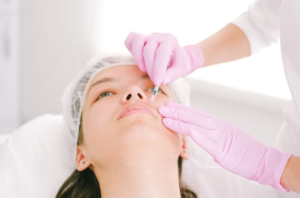
Infectious disorders of the respiratory tract can have a substantial negative influence on both our general health and our enjoyment of life. As the number of people who have respiratory diseases continues to rise, there are steps you can take to protect yourself and your loved ones. This post will give you helpful information and insights on five actionable approaches to protect your respiratory health. Adhering to these suggestions can lower your likelihood of developing respiratory disorders. As a result, you’ll lead a healthier life.
1. Maintain Good Hygiene
The prevention of the spread of respiratory infections is greatly aided by adopting appropriate hygiene practices. Sanitizers can be used on your hands in the absence of soap. It’s polite to shield your face from germs by using a tissue or your elbow when you have to cough or sneeze. This will lessen the spread of germs. Germs can be spread by touching your face, particularly your eyes, nose, and mouth. Therefore, you can try to avoid doing so. Regular cleaning and disinfection are necessary for surfaces touched frequently, such as doorknobs, countertops, and mobile devices. You can reduce the likelihood of catching a respiratory infection and keep the environment around you healthier if you observe proper hygiene practices.
2. Ensure Proper Ventilation
It is necessary to have adequate ventilation to keep the air inside a building clean and pleasant. Keep your doors and windows as much as possible so fresh air may circulate the room. By installing exhaust fans in your kitchen and bathroom, you can effectively purge the air of moisture and impurities. Dust, allergens, and hazardous particles can accumulate in ventilation systems. Examples of these systems include air conditioners and air filters. You can improve your respiratory health and lower the number of airborne pollutants in your living spaces by increasing the amount of ventilation available in such rooms.
3. Incorporate Healthier Lifestyle Habits Into Your Routine
One of the most crucial things you can do to safeguard your respiratory system is to have a healthy lifestyle. You may enhance your overall cardiovascular fitness and the power of your lungs by engaging in frequent physical activity. It is important to eat a well-rounded diet high in fruits, vegetables, whole cereals, and lean proteins to acquire the vital nutrients necessary for proper respiratory function. Avoid smoking and reduce your exposure to secondhand smoke as much as possible because doing so considerably raises the chance of developing respiratory ailments. You can get enough rest and sleep if you want your body to recuperate and feel refreshed. You may boost your body’s natural defenses and minimize the likelihood of having respiratory problems if you adopt healthy lifestyle practices. This will help you feel better overall.
4. Minimise Exposure to Pollutants
For the sake of protecting your respiratory health, it is essential to cut down on your exposure to contaminants. Maintain an awareness of your neighborhood’s current air quality levels, and take the appropriate safety measures on days when the air quality is poor. You need to use air purifiers or filters to rid your living spaces of airborne pollutants like dust, pollen, and mold spores. In a smokey or asbestos-polluted area, you can wear a mask to protect yourself from dangerous particles. Reduce your exposure to irritants in the home, such as strong odors, asbestos, cleaning chemicals, and pet fur, as much as possible. You can shield your respiratory system from potential damage by proactively reducing your exposure to pollutants and taking the appropriate precautions.
5. Consult a Legal or Medical Expert In the Field
Suppose you have a history of being exposed to asbestos or are experiencing symptoms related to lung disease. You may ask yourself, “What does mesothelioma feel like?” or “Who should I speak to about this?”. Fortunately, you can speak with a medical professional or get legal help to find out more about it. Patients diagnosed with mesothelioma have a considerably better chance of survival and an enhanced quality of life if their disease is detected and treated in its early stages. You should seek the advice of a medical or legal expert if you are experiencing symptoms that do not go away or have worries about your respiratory health. They can offer individualized counsel and direction based on your particular situation.
Conclusion
Taking precautions against respiratory illnesses is necessary to keep your health and well-being at their peak. Following the five recommendations in this article will significantly reduce your risk of getting a respiratory illness. These strategies include practicing excellent hygiene, ensuring adequate ventilation, adopting healthy lifestyle habits, limiting exposure to pollutants, and getting the advice of a specialist. Remember that your respiratory health is an investment in your overall wellness. You can protect it by taking preventative measures.


